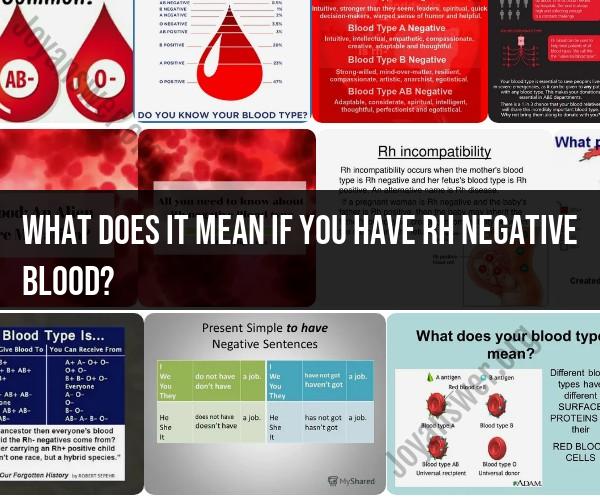What does it mean if you have rh negative blood?
Rh negative blood is a unique blood type that carries distinctive characteristics and holds significance in various medical scenarios. This guide provides insights into the traits of Rh negative blood and its importance in healthcare.
Introduction to Rh Negative Blood
Rh factor, also known as Rhesus factor, is a protein found on the surface of red blood cells. Blood is classified as either Rh positive (having the Rh factor) or Rh negative (lacking the Rh factor).
Characteristics of Rh Negative Blood
Rh negative blood is characterized by the absence of the Rh factor. It can be inherited from either parent.
Compatibility and Pregnancy
Rh factor compatibility is crucial during pregnancy:
1. Rh- Mother and Rh+ Father
If the mother is Rh negative and the father is Rh positive, the baby may inherit Rh positive blood, leading to potential complications in subsequent pregnancies.
2. Rh Sensitization
If an Rh negative mother carries an Rh positive baby, there's a risk of Rh sensitization, where the mother's immune system produces antibodies against Rh positive blood cells.
Medical Procedures and Transfusions
Understanding Rh factor is essential for:
1. Blood Transfusions
Rh compatibility is considered to prevent adverse reactions during blood transfusions.
2. Organ Transplants
Rh compatibility is also taken into account during organ transplantation.
Genetic Origins
The exact origin of Rh negative blood is debated, with theories ranging from genetic mutations to ancient migrations.
Populations with Rh Negative Blood
Higher percentages of Rh negative blood are found among certain populations, such as Basque people and some indigenous groups.
Conclusion
Rh negative blood, characterized by the absence of the Rh factor, holds significance in compatibility during pregnancy, medical procedures, and transfusions. Understanding its traits and implications is essential for promoting safe healthcare practices and addressing potential complications.













